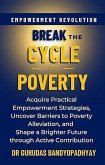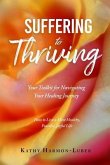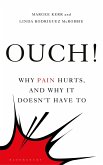Dr. Preeti Singh: The Invisible Lines of Poverty is a wonderful multi-faceted anthology that delves deep into the complex realities of poverty through essays, reflections, and narratives contributed by a diverse group of authors. The work is distinctive due to its holistic approach. It integrates personal anecdotes, philosophical perspectives, and global analyses to challenge the different aspects and thoughts about poverty. The Invisible Lines of Poverty is more than a book; it is a call to action. It discusses the society's complacency and encourages readers to recognize the systemic and personal dimensions of poverty
Annelise Lords: Growing up in poverty, I wished it on no one. But then, I realized that it was part of my life's journey. Life put me there for a reason. I hate poverty and view it as pain. Reading the Invisible Lines Of Poverty, my first thought was that no lines in or to poverty are invisible. I can see them. All of them. As I feasted on more, I found the lines. Poverty means different things to all of us, and many humans really don't know they are poor. I live among many who allow its cycle to continue for several generations. This book opens many different doors and ideas about poverty's meaning. It shows its stages, including The Emotional Side of Poverty. Yes, poverty has many sides, and these writers share their personal, deep-rooted experiences living and tasting poverty along with their inspirational survival stories and ideas that can help humanity.
Gabriela Trofin-Tatár: The Invisible Lines of Poverty succeeds in making readers see poverty in a more human and complex way. It is a thought-provoking and interactive anthology, challenging readers to think differently about poverty. It looks at both the physical aspects of not having enough money or resources, and the emotional and spiritual sides of feeling poor. The book encourages readers to reflect on their own understanding of poverty and consider how they can make a difference.
B.R. Shenoy: I was fortunate to grow up with everything I needed and more. But every time my family and I drive through the downtown of a major city, I'm reminded of the reality so many face. Homeless people living on the streets, holding signs, or coming up to car windows asking for foodit's impossible to ignore. Traveling to poorer countries has shown me even more. I've seen people living in slums, entire families surviving in homes pieced together with scraps. In some places, there's no zoning, and you'll see a mansion sitting right next to a slum. That contrast stays with you.
Karsten Ramser: Poverty is not merely an external condition but a reflection of humanity's collective consciousness. Rooted in self-centered priorities, it persists because individuals prioritize personal needs over collective well-being. Wealth and poverty are inseparable; in our actual society material affluence exists only at the expense of others. Blaming elites alone oversimplifies the issue. Instead, humanity must transcend pre-personal and personal levels of consciousness, where self-interest dominates, and adopt a transpersonal perspective focused on compassion, interconnectedness, and shared responsibility.
Dieser Download kann aus rechtlichen Gründen nur mit Rechnungsadresse in A, B, CY, CZ, D, DK, EW, E, FIN, F, GR, H, IRL, I, LT, L, LR, M, NL, PL, P, R, S, SLO, SK ausgeliefert werden.









